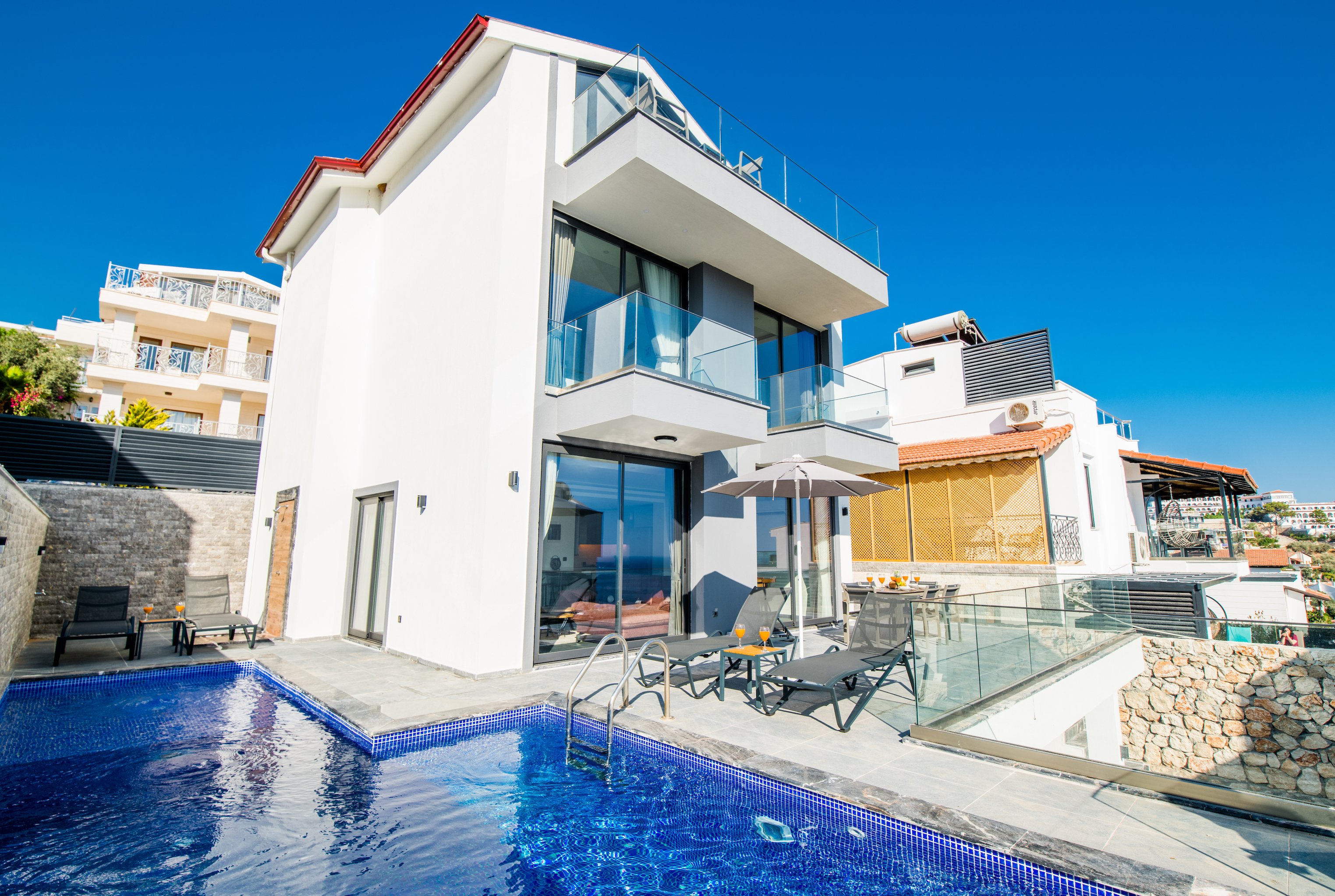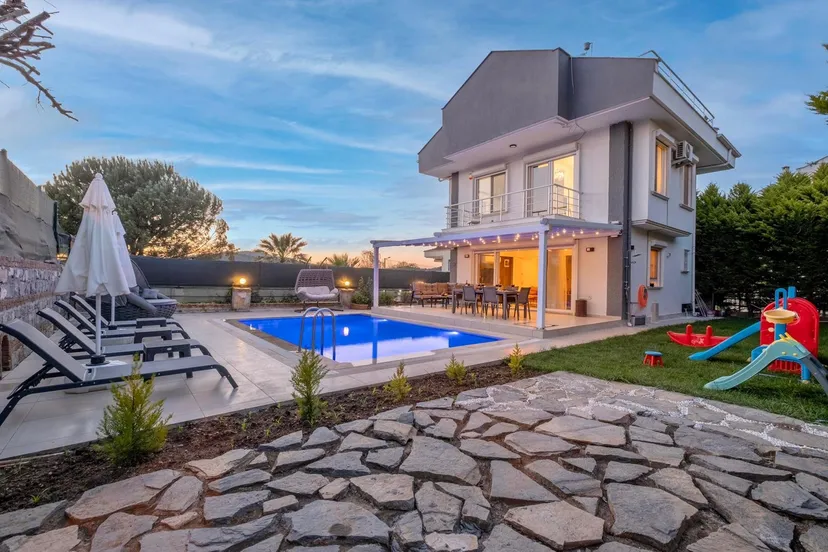Owning a vacation home can be both a rewarding investment and a financial commitment. This article explores the advantages and disadvantages of purchasing a vacation property, including critical financial considerations, potential rental income, tax benefits, and maintenance responsibilities.
Whether for personal use or rental income, a vacation home can impact your finances, lifestyle, and long-term goals.
Pros of Owning a Vacation Home

1. Potential for Rental Income
Owning a vacation home can provide additional rental income, mainly if located in a popular vacation spot with high demand during peak seasons.
Vacation rentals often have higher income potential than traditional rentals due to short-term rental rates. Many vacation homeowners capitalize on the market by renting out their properties through popular platforms, which allows them to cover some expenses, including mortgage payments, property taxes, and maintenance costs.
2. Property Appreciation and Investment Value
Property values in popular vacation destinations tend to increase, providing owners with capital appreciation potential. By buying a vacation property in a sought-after area, you may benefit from property appreciation, turning it into a solid investment property.
This investment aspect can also support retirement planning, as property value gains may yield significant returns.
3. Tax Benefits and Deductions
Vacation home ownership offers multiple tax benefits. Depending on how you use the property, tax deductions may be available for mortgage interest, property taxes, and rental expenses if you rent out the home for part of the year.
Consulting a tax professional is essential to ensure you’re maximizing eligible deductions.
4. Personal Use and Creating Memories
Owning a vacation home allows you to create lasting memories with family and friends in a space designed for relaxation and enjoyment.
Having a vacation property means you can visit your favorite vacation spot anytime without booking hotel rooms or vacation rentals, adding convenience and comfort to your travel plans.
5. Renting Flexibility
As the owner, you control when to rent out the property. If you want to use it exclusively for personal use during certain times of the year, you can block those dates yourself. The rest of the year can be dedicated to short-term rentals to generate extra income.
6. Potential for a Retirement Home
Many buyers purchase a vacation home, intending to use it as a primary residence in retirement. Moving into a home you already own can make for a seamless transition when the time comes. With property appreciation and long-term equity gains, the vacation property can eventually become a retirement asset.
Cons of Owning a Vacation Home

1. Financial Responsibilities and Heavy Costs
Owning a vacation home is a heavy financial responsibility. Not only do you need to manage the mortgage and down payment, but there are additional expenses, including property management fees, real estate taxes, insurance, and regular maintenance.
If renting out the property, there will be management fees for property management companies to handle lawn maintenance, cleaning, and tenant inquiries.
2. Risk of Unexpected Expenses
A vacation home may incur unexpected expenses from emergency repairs, adverse weather conditions, and property wear and tear. Vacation areas often face environmental challenges that can impact properties, such as coastal flooding for a beach house or snow damage in mountain properties. Maintaining a cash reserve is essential to handle these costs.
3. Property Management Challenges
Managing a vacation property requires a significant time commitment. Managing short-term rentals and maintenance can be difficult if the property is located far from your primary residence. Hiring a property manager or a property management company can simplify this, but it will incur additional costs that may affect rental income.
4. Fluctuating Rental Demand
Rental demand can be inconsistent and heavily dependent on seasons. During off-peak periods, it may be harder to rent out the property, resulting in lost rental income. This fluctuation means your extra income could be seasonal, affecting your ability to rely on rental earnings consistently.
5. Capital Gains and Tax Implications
When selling a vacation home, owners may face capital gains taxes if the property has appreciated. Unlike a primary residence, where capital gains tax exemptions may apply, second homes often don’t qualify for such exclusions. It’s essential to consult a tax professional for guidance on potential capital gains tax implications.
6. Strict Local Regulations and Rental Restrictions
Local regulations can significantly impact the profitability of vacation homes. Many vacation destinations enforce local laws restricting short-term rentals or requiring special permits. These regulations can add complexity to managing a vacation rental property, making it essential to research local laws before purchasing.
Financial Considerations When Buying a Vacation Home
Larger Down Payment Requirements: Buying a vacation home often requires a larger down payment than primary residences, as mortgage lenders see them as higher-risk investments. Be prepared to put down a minimum of 20-30%.
Higher Interest Rates: Lenders may charge a higher mortgage interest rate on vacation homes since they’re typically considered riskier investments. Higher rates can increase monthly mortgage payments, impacting overall costs.
Rental Income Potential: Calculate potential rental income based on comparable vacation rental properties in the area. Look at peak season and off-season rental rates to estimate how much income you can realistically expect.
Additional Expenses and Cash Reserve: A vacation home requires a cash reserve to cover unexpected expenses, vacation expenses, and regular upkeep. Lawn maintenance, pool cleaning, and routine regular maintenance are typical costs that must be accounted for in a budget.
Professional Help for Management: Hiring a property management company can save you time and ensure the property is well-maintained and rented. However, management fees typically range from 10-20% of rental income, which can reduce net earnings.
Tax Benefits and Implications of Owning a Vacation Home

Tax Deductions for Rental Expenses: If you rent out your vacation home for part of the year, you may be able to deduct rental-related expenses, including mortgage interest, property taxes, and rental fees. Working with a tax professional is essential to ensure tax law compliance and maximize deductions.
Limitations on Personal Use: Tax laws specify limits on personal use if you want to claim rental deductions. Generally, if you use the property personally for more than 14 days or 10% of the total days it’s rented, the IRS classifies it differently, limiting some tax benefits.
Potential Capital Gains Tax on Sale: Selling a vacation property may trigger capital gains taxes on the appreciated value. To plan effectively, consult with a financial advisor to structure the sale of the property in a tax-efficient manner.
Primary Residence Conversion: For those considering turning a vacation home into a primary residence, there may be tax advantages, including capital gains exclusions, if you live there for a specified period before selling.
Managing Your Vacation Home Investment
Effective management is essential for those relying on rental income. Here are some ways to streamline property management:
Hiring a Property Manager: A property manager can oversee everything from guest check-ins to maintenance requests, ensuring smooth operations without your direct involvement.
Marketing for High Occupancy: Use popular vacation rental platforms to market your property during high-demand seasons. High ratings and positive reviews can improve occupancy rates and help you earn consistent extra income.
Regular Maintenance and Repairs: To avoid large unexpected expenses, proactively conduct regular maintenance and address minor repairs. Preventive maintenance is critical, especially for properties exposed to adverse weather conditions like beach houses.
Pros and Cons Summary
Pros Cons
Additional rental income potential High upfront costs and ongoing expenses
Opportunity for tax deductions Inconsistent rental demand in off-seasons
Long-term property appreciation Possible capital gains tax when selling
Personal use for family vacations Need for property management
Potential future retirement home Local regulations affecting rentals
Is a Vacation Home a Good Investment?

A vacation home can be a good investment if aligned with your financial goals and lifestyle preferences. Key considerations include:
Investment Goals: Determine if you want a property mainly for personal use, rental income, or capital appreciation. Each goal impacts the type of property, location, and management style you should pursue.
Location and Demand: Ensure the property is in a vacation spot with steady demand. Locations near local attractions, beaches, or ski resorts often have higher rental income potential.
Financial Flexibility: Understand the impact on your finances, including how the mortgage, property taxes, maintenance, and unexpected expenses affect cash flow. A cash reserve is essential for managing these costs without financial strain.
Closing Thoughts on Owning a Vacation Home
Buying a vacation home can be a rewarding investment when approached strategically. Balancing personal use with rental options allows you to enjoy the benefits of both worlds. The potential to generate rental income can help offset costs like the mortgage, property taxes, and maintenance.
Owning a vacation home also offers a personal retreat to create cherished memories with loved ones, free from the hassle of booking hotel rooms or searching for vacation rentals.
Additionally, it can serve as a long-term investment, with potential property appreciation in popular vacation spots near local attractions, enhancing your wealth and supporting retirement planning.
However, consider the financial responsibilities, such as the need for a larger down payment and possible unexpected expenses. Be aware of local laws affecting rental capabilities. Consulting a financial advisor and a property manager can aid in navigating these challenges.
In summary, owning a vacation home can be rewarding if it aligns with your financial goals and lifestyle. You can maximize its benefits and enjoy unique experiences by understanding the intricacies.
Read Also:
The Impact of Tourism on The Real Estate Market in Istanbul
Exploring Turkey's Tourist Hotspots: Ideal Locations for Vacation Property Investment


